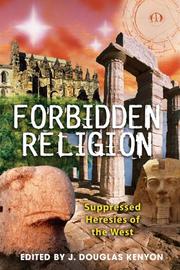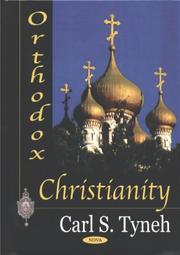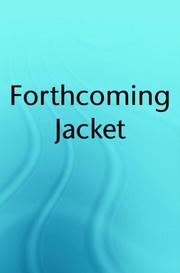| Listing 1 - 7 of 7 |
Sort by
|

ISBN: 1591430674 9781591430674 Year: 2006 Publisher: Rochester : Bear and company,
Abstract | Keywords | Export | Availability | Bookmark
 Loading...
Loading...Choose an application
- Reference Manager
- EndNote
- RefWorks (Direct export to RefWorks)
"Reveals the thread that unites the spiritual paths that have opposed orthodox religion over the centuries and the challenge they provide the status quo"--Provided by publisher. Reveals the thread that unites the spiritual paths that have opposed orthodox religion over the centuries and the challenge they provide to the status quo • Contains 40 essays by 18 key investigators of heresies and suppressed spiritual traditions, including Steven Sora, Ian Lawton, Jeff Nisbet, P.M.H. Atwater, John Chambers, and Vincent Bridges • Edited by Atlantis Rising publisher, J. Douglas Kenyon Following the model of his bestselling Forbidden History, J. Douglas Kenyon has assembled from his bi-monthly journal Atlantis Rising material that explores the hidden path of the religions banned by the orthodox Church--from the time before Christ when the foundations of Christianity were being laid to the tumultuous times of the Cathars and Templars and the Masons of the New World. Revealed in this investigation of the roots of Western faith are the intimate ties of ancient Egyptian religion to Christianity, the true identities of the three magi, the link forged by the Templars between early Christianity and the Masons, and how these hidden religious currents still influence the modern world. This book serves as a compelling introduction to the true history of the heretical religious traditions that played as vital a role in society as the established faiths that continuously tried to suppress them. Born in the same religious ferment that gave birth to Christianity, these spiritual paths survived in the “heresies” of the Middle Ages, and in the theories of the great Renaissance thinkers and their successors, such as Isaac Newton and Giordano Bruno. Brought to the New World by the Masons who inspired the American Revolution, the influence of these forbidden religions can be still found today in “The Star Spangled Banner” and in such Masonic symbols as the pyramid on the back of the dollar bill.
Christianity --- Freemasonry --- Secret societies --- Religious aspects --- Christianity. --- Jesus Christ --- Atlantis Rising --- religion --- bannishment by the Orthodox Church --- Cathars --- Templars --- Masons --- Western faith --- Egyptian religion --- The Da Vinci Code --- hidden religious currents --- heresy --- the Middle Ages --- Renaissance --- the American Revolution --- symbolism

ISBN: 1590334663 Year: 2002 Publisher: New York (N.Y.) Nova Science Publishers
Abstract | Keywords | Export | Availability | Bookmark
 Loading...
Loading...Choose an application
- Reference Manager
- EndNote
- RefWorks (Direct export to RefWorks)
281.5 --- 281.5 Oosterse, Byzantijnse kerken:--in het algemeen --- Oosterse, Byzantijnse kerken:--in het algemeen --- Orthodox Eastern Church --- Eastern Orthodox Church --- Pravoslavnai︠a︡ vostochnai︠a︡ t︠s︡erkovʹ --- Holy Orthodox Catholic Apostolic Church --- Holy Orthodox Eastern Catholic and Apostolic Church --- Greek Church --- Orthodoxos Katholikē Ekklēsia --- Orthodoxos Katholikē kai Anatolikē Ekklēsia --- Kanīsah al-Sharqīyah --- Tung cheng chiao --- Kanīsat al-Masīḥ al-Sharqīyah al-Urthudhuksīyah --- Biserica Ortodoxă --- .كنيسة الشرقية الارثوذكسية --- Orthodox Eastern Church. --- the Orthodox Church --- Orthodox Christianity --- Christianity --- independent churches --- 1054 --- the Roman church
Book
ISBN: 9781409462309 Year: 2013 Publisher: Leiden, Netherlands ; Burlington, Vermont : Ashgate Publishing Company,
Abstract | Keywords | Export | Availability | Bookmark
 Loading...
Loading...Choose an application
- Reference Manager
- EndNote
- RefWorks (Direct export to RefWorks)
Cults. --- Sects. --- Cultes --- Sectes --- revision --- diversification --- new religious movements --- The Family International --- the Hinduisation of the Hare Krishna Movement --- the post- Sun Myung Moon Unification Church --- the Church of Scientology --- La Mission de l'Esprit-Saint --- prophecies --- schisms --- Québec --- the Orthodox Church of the Sovereign Mother of God --- the New Cathar Church --- theological revisionism --- the Branch Davidians --- Aum Shinrikyo --- Hikari no Wa --- doctrinal revision --- Falungong --- Hizb ut Tahrir --- strategy and ideology --- Britain --- MEK --- Mujahedin e Khalegh --- Mormon origins --- historical revisionism --- revisionism in the New Age movement --- healing with crystals --- intentional communities --- enacted Utopianism --- North American cult awareness organizations --- NRMs
Book
Year: 2000 Publisher: Brussels European Commission - Forward Stdues Unit
Abstract | Keywords | Export | Availability | Bookmark
 Loading...
Loading...Choose an application
- Reference Manager
- EndNote
- RefWorks (Direct export to RefWorks)
the Forward Studies Unit --- diversity --- the European Humanist Federation --- Europe --- a theology of and for Europe --- European rights and responsibilities --- the Commission for Church and Society (CES) of the Conference of European Churches (KEK) --- the Conference of European Rabbis --- the UNESCO Chair for 'Connaissance réciproque des religions du Livre' --- Orthodox Christianity --- Ecumenical Patriarchate --- Bureau of the Orthodox Church of the European Union --- civil Society --- the European Forum of Civil Society --- transnational civil society --- the Scenarios Europe 2010 Project --- 'A Soul for Europe. Ethics and Spirituality'
Book
Year: 2000 Publisher: Brussels European Commission - Forward Studies Unit
Abstract | Keywords | Export | Availability | Bookmark
 Loading...
Loading...Choose an application
- Reference Manager
- EndNote
- RefWorks (Direct export to RefWorks)
the Forward Studies Unit --- diversity --- the European Humanist Federation --- Europe --- a theology of and for Europe --- European rights and responsibilities --- the Commission for Church and Society (CES) of the Conference of European Churches (KEK) --- the Conference of European Rabbis --- the UNESCO Chair for 'Connaissance réciproque des religions du Livre' --- Orthodox Christianity --- Ecumenical Patriarchate --- Bureau of the Orthodox Church of the European Union --- civil Society --- the European Forum of Civil Society --- transnational civil society --- the Scenarios Europe 2010 Project --- 'A Soul for Europe. Ethics and Spirituality'
Book
ISBN: 9781472434692 1472434692 9781472434708 9781472434715 9781315614502 9781317038818 9781317038825 9781138547063 1472434706 1472434714 Year: 2014 Publisher: Burlington: Ashgate,
Abstract | Keywords | Export | Availability | Bookmark
 Loading...
Loading...Choose an application
- Reference Manager
- EndNote
- RefWorks (Direct export to RefWorks)
Emigration and immigration --- Emigration et immigration --- Religious aspects. --- Aspect religieux --- Europe --- Religion --- Religious aspects --- Religious life and customs --- 316:2 <4> --- Godsdienstsociologie--Europa --- Council of Europe countries --- Eastern Hemisphere --- Eurasia --- 316:2 <4> Godsdienstsociologie--Europa --- Emigration and immigration - Religious aspects --- Europe - Religion - 21st century --- Europe - Religious life and customs --- religion --- migration, religion and social theory --- economy, migration and social change --- immigrant religions and the context of reception in advanced industrial societies --- religion and migration in Europe --- migration and ethno-religious identity --- Greece --- the Orthodox Church --- the Portuguese Catholic Church --- Eastern European immigrants --- Catholic-Christian second generations --- ethnic and religious diversities in Portugal --- Brazilian Evangelical immigrants --- African Christian communities --- Sweden --- young Muslim women's public self-representations --- Italy --- values and religion in transition --- Swedish multicultural public school --- Hijab --- Oslo --- religiousity and ethnicity --- Vietnamese immigrant religion in Denmark

ISBN: 1134360827 1280063203 0203014537 9780203014530 0415320534 9780415320535 9780415546164 9781134360772 9781134360819 9781134360826 1134360819 Year: 2005 Publisher: London New York RoutledgeCurzon
Abstract | Keywords | Export | Availability | Bookmark
 Loading...
Loading...Choose an application
- Reference Manager
- EndNote
- RefWorks (Direct export to RefWorks)
Russian Society and the Orthodox Church examines the Russian Orthodox Church's social and political role and its relationship to civil society in post-Communist Russia. It shows how Orthodox prelates, clergy and laity have shaped Russians' attitudes towards religious and ideological pluralism, which in turn have influenced the ways in which Russians understand civil society, including those of its features - pluralism and freedom of conscience - that are essential for a functioning democracy. It shows how the official church, including the Moscow Patriarchate, has impeded the developm
Church and state --- Russkai͡a pravoslavnai͡a t͡serkovʹ. --- Orthodox Eastern Church --- Chiesa ortodossa russa --- Chiesa russa --- Eglise russe --- Orthodox Eastern Church (Russian) --- Rosiĭsʹka pravoslavna t︠s︡erkva --- RPT︠S︡ --- Russian Church --- Russian Orthodox Church --- Russian Orthodox Eastern Church --- Russisch-Orthodoxe Kirche --- Russische Orthodoxe Kirche --- Русская православная церковь --- РПЦ --- Російська православна церква --- Soviet Union --- Church history. --- Post-communism --- 2 <47> --- 261.7 <47> --- 281.93 --- 281.93 Orthodoxe Kerk van Rusland --- Orthodoxe Kerk van Rusland --- 261.7 <47> De Kerk en de burgerlijke macht: Kerk en Staat; godsdienstvrijheid; verdraagzaamheid; tolerantie:--theologische aspecten--Rusland. Sovjet-Unie --- De Kerk en de burgerlijke macht: Kerk en Staat; godsdienstvrijheid; verdraagzaamheid; tolerantie:--theologische aspecten--Rusland. Sovjet-Unie --- 2 <47> Godsdienst. Theologie--Rusland. Sovjet-Unie --- Godsdienst. Theologie--Rusland. Sovjet-Unie --- Russkai︠a︡ pravoslavnai︠a︡ t︠s︡erkovʹ. --- Russia (Federation) --- Russia --- Russian society --- religion in Russia --- Communism --- religion in Russia after Communism --- the Orthodox Church --- religious pluralism --- ideological pluralism --- the Moscow Patriarchate --- Russian Orthodoxy --- Russkaia pravoslavnaia tserkov.
| Listing 1 - 7 of 7 |
Sort by
|

 Search
Search Feedback
Feedback About UniCat
About UniCat  Help
Help News
News